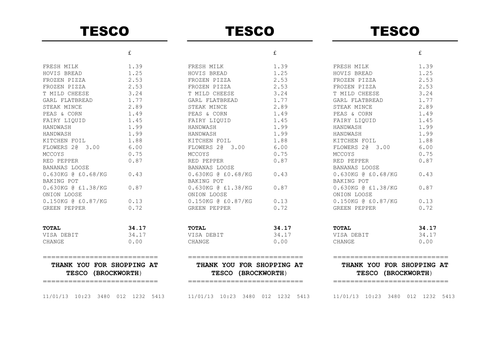‘Loidis Ledes Leeds’
Year 4 have begun a new class novel called ‘Loidis Ledes Leeds’ written by Tom Palmer. This five part story follows the adventures of three pupils across Leeds and across time.
Iron Age Romans Anglo Saxons Vikings Now
The characters travel through historical periods and uncover some VERY exciting facts about the city of Leeds. The historical finds can be visited today, if you fancy an afternoon out.
There are two ways to enjoy this story. These are via a PDF document and online. The children have really enjoyed listening to the author narrate the first few chapters.

https://tompalmer.co.uk/wp-content/uploads/2016/01/Leeds-story-2016-full.pdf
The first historical adventure ends in Barwick in Elmet, Leeds where the children discover the remains of a large Iron Age hillfort.
Help your child by sharing this story and read (or listen to ) the next chapter at home. Encourage your child to research each historical find and the period of history they originate from.
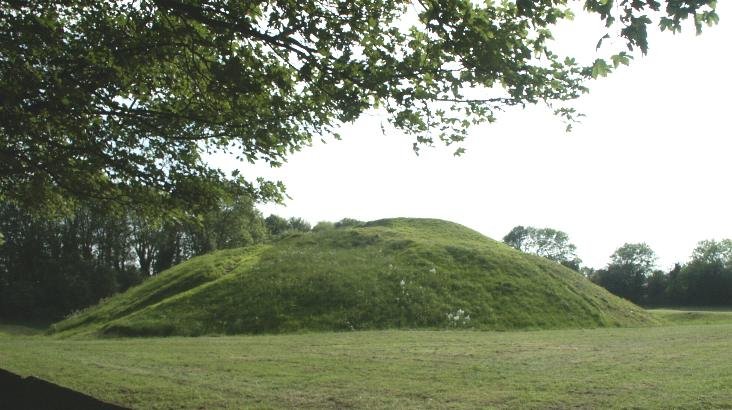
Writing money as decimals
Year 4 have been learning how to write a given amount of money in decimal notation. The children explored the use of pounds and pence notation and this helped to develop their understanding that the digits following the decimal point represent part of a pound.
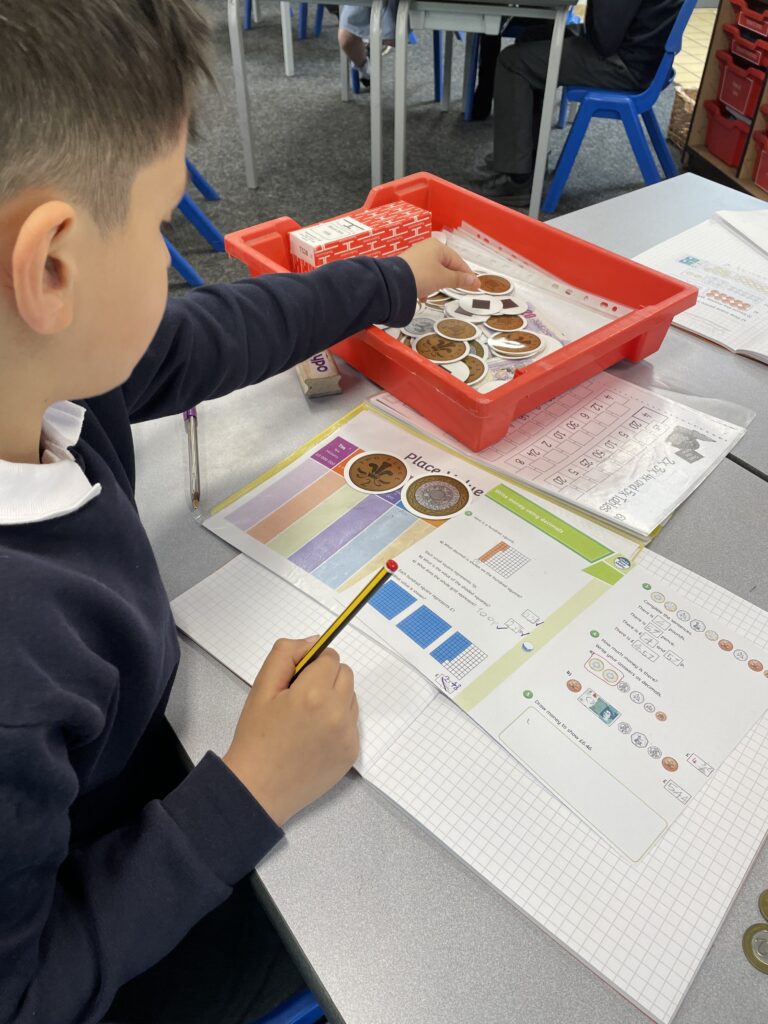
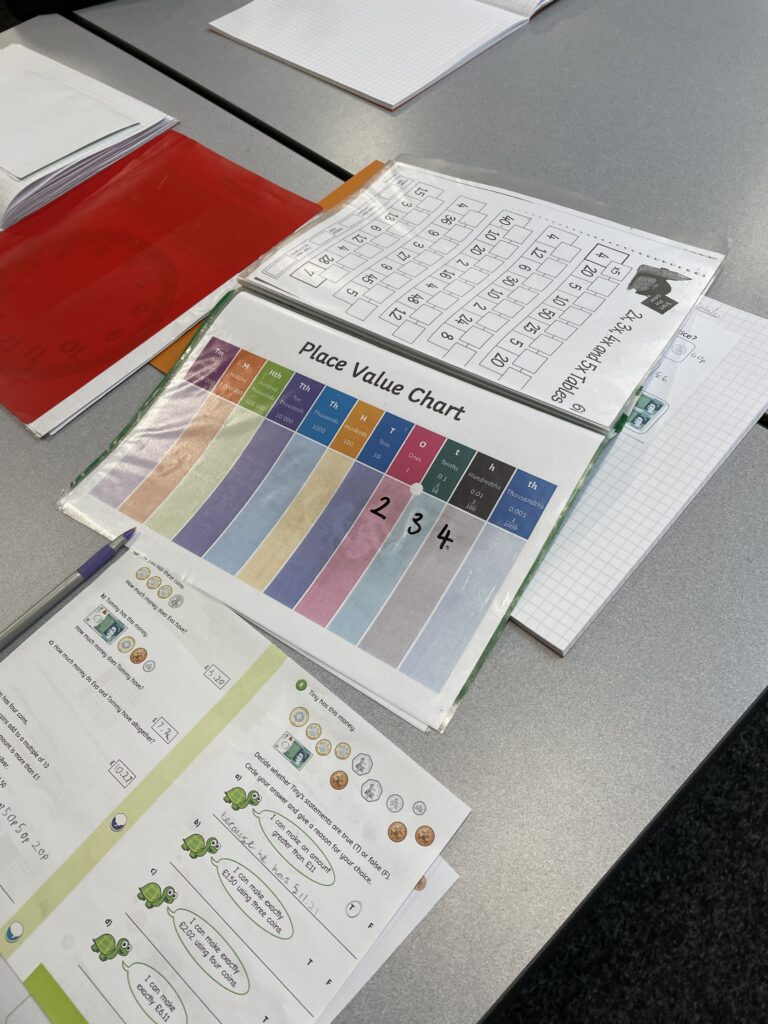 Help at home
Help at home
Next time you go shopping keep the till receipt or use the ones below.
Ask your child some of the following questions.
- Which is the most expensive item?
- Convert £1.99 into pence.
- How would you write 13p as a decimal?
- Which item has the most tenths?
- What is the total cost for two pizzas?
- Which item has no tenths and no hundredths?
- How many pounds and pence in 474p?
History: What is a carnival?
We’ve kicked off this topic’s learning in fine style! This history driven topic will explore carnivals from around the world but also closer to home – The Leeds West Indian Carnival.
Why not search online about carnivals – we looked at carnivals in Rio de Janeiro, Venice and Leeds. Quiz your child on what things make up a great carnival!
Be sure to chat to your child about the key vocabulary we’ll be using throughout…
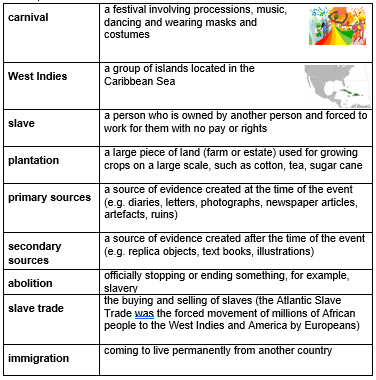
We are physicists!
Physics is the study of forces and energy and this half term Year 4 are being physicists in their science. The main focus of the sessions will be forces and magnets.
On Monday, the class learnt what a force is and explored different forces. What is a force?
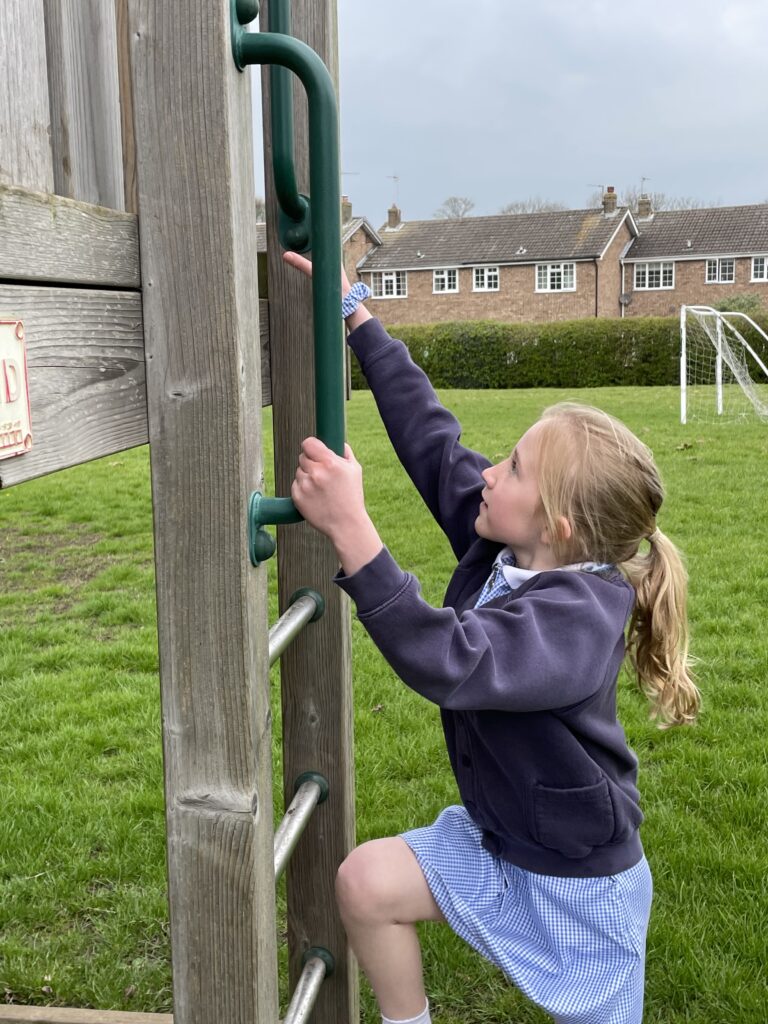
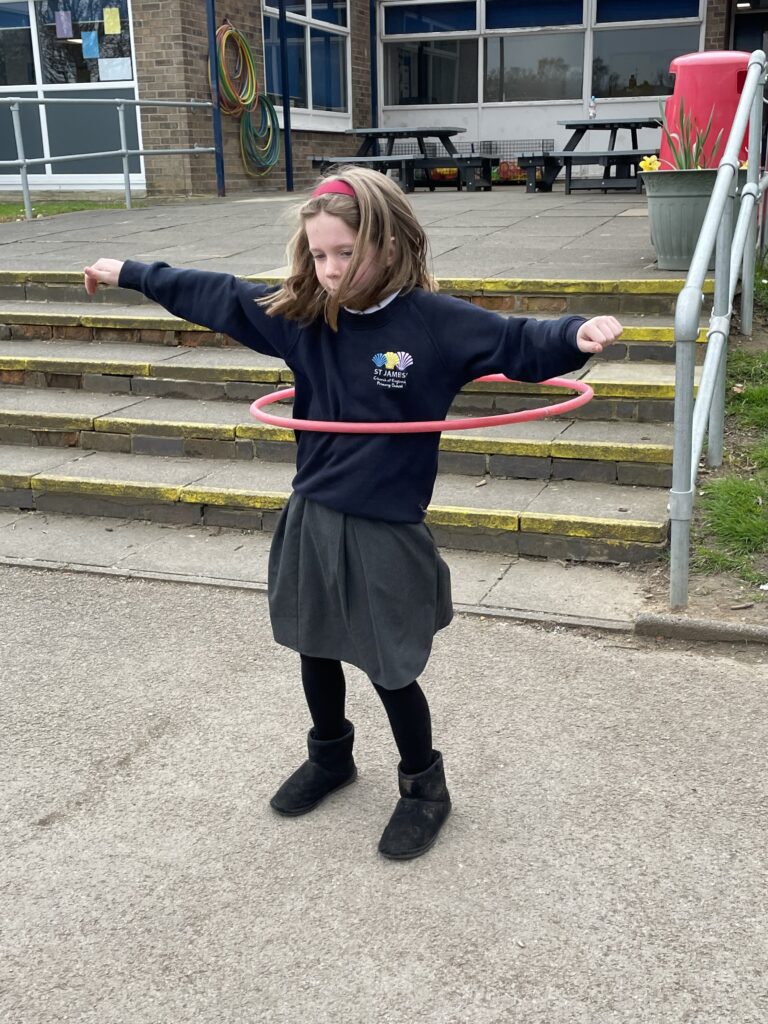
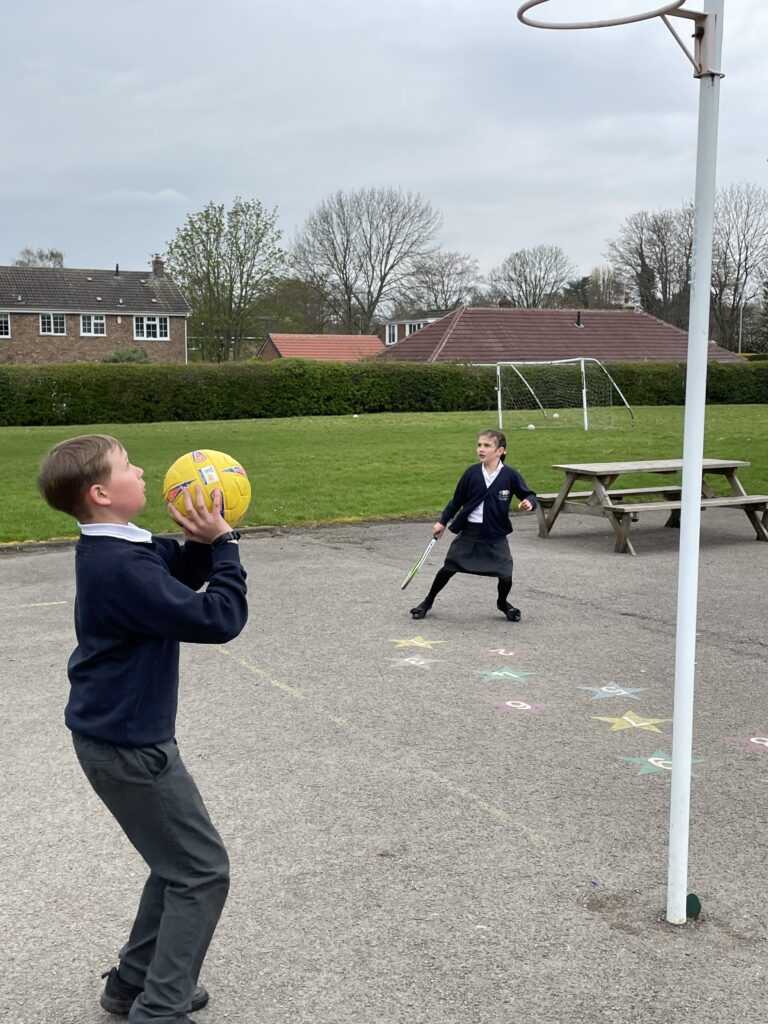
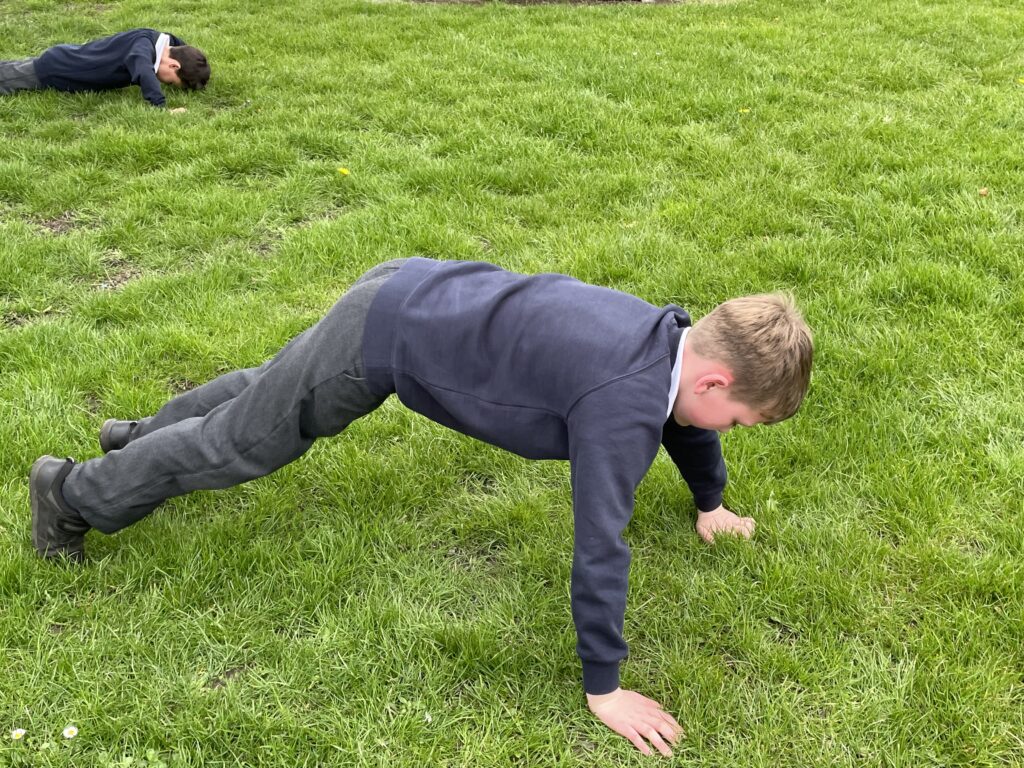
Help at home.
A push, pull and twist are all contact forces. Discuss this with your child. Can they tell you why the word contact is used to describe the force?
Explore these forces at home and please send in any photos of your child doing this task. We love to celebrate extra learning done at home!
Easter Church Service
We enjoyed a trip to St James’ Church earlier today for our Easter service.
Years 3 and 4 read our poem ‘Easter In My Hand’ beautifully. Many children could recite their line from memory!
In case you missed this, please follow the link below to watch the recording.
Well done Years 3 and 4!
Working Scientifically
Asking questions is a very important part of thinking like a scientist and many scientific investigations begin with a question. As part of their ‘Nappy Challenge,’ the children have been exploring some scientific questions and how they could answer these.
- ‘Why… ?’
- ‘How… ?’
- ‘When… ?’
- ‘What….?’
- ‘Which….?’
- ‘Can you explain…?’

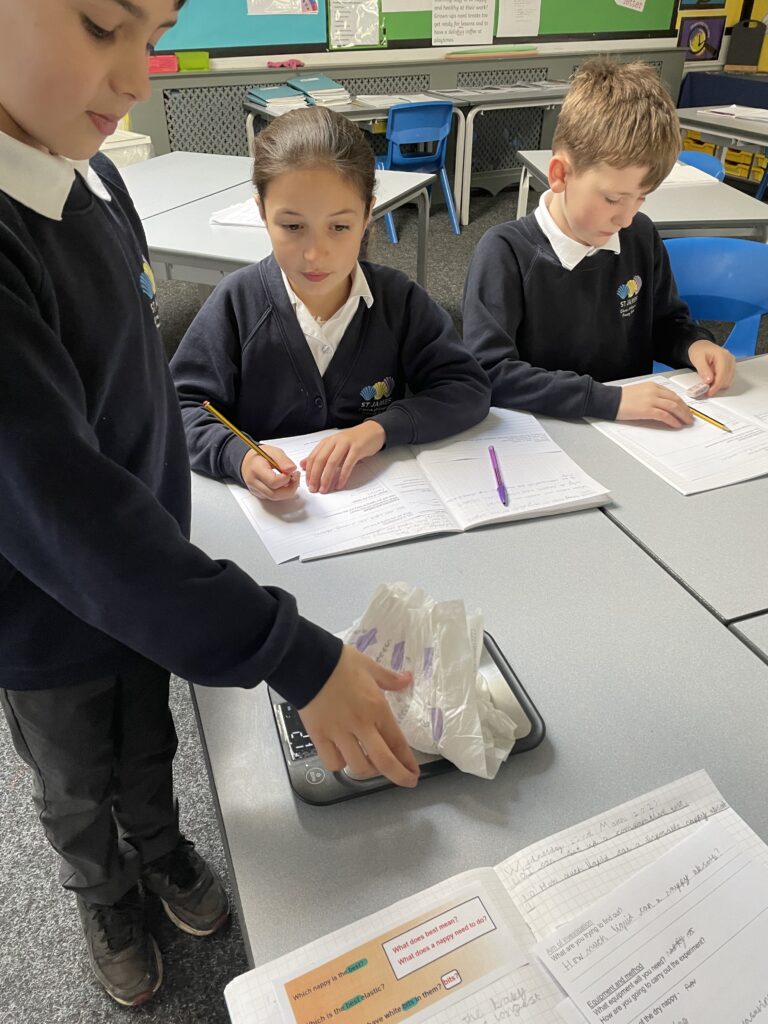
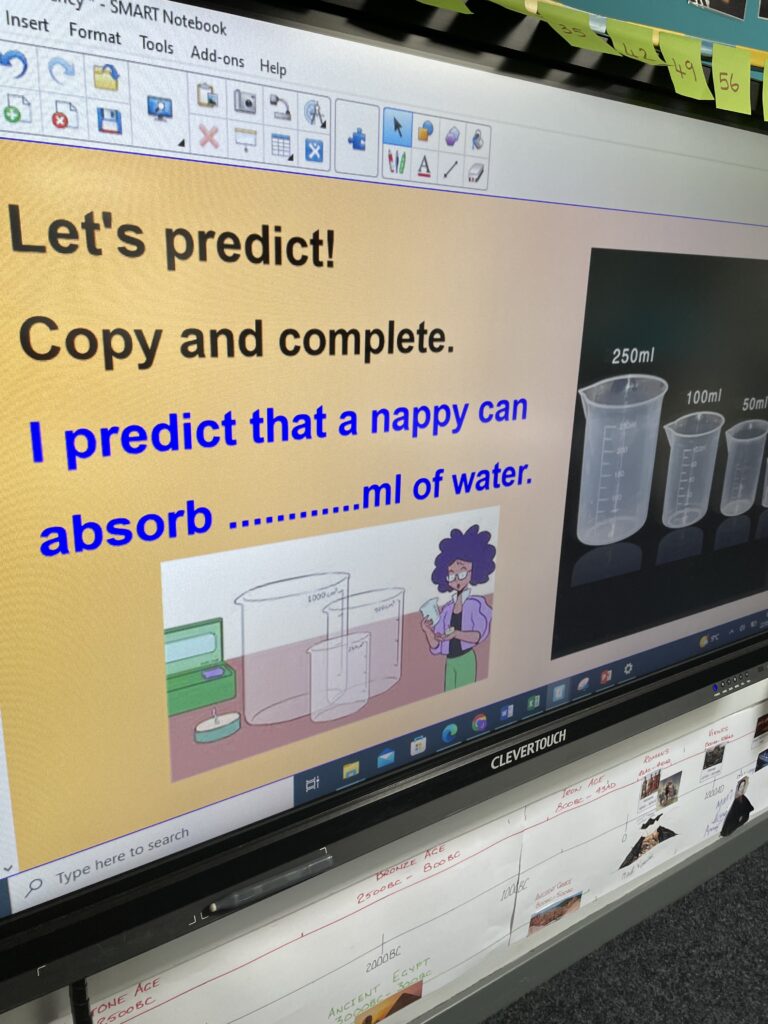
Wow, the liquid is soaking in!
I can’t believe how much liquid a nappy can absorb!
My prediction was quite accurate.
You can see the liquid being absorbed.
The more liquid we poured, the heavier the nappy became.
As we poured 600mls, we observed how the liquid was beginning to collect on the surface of the nappy. This would irritate a baby’s delicate skin.
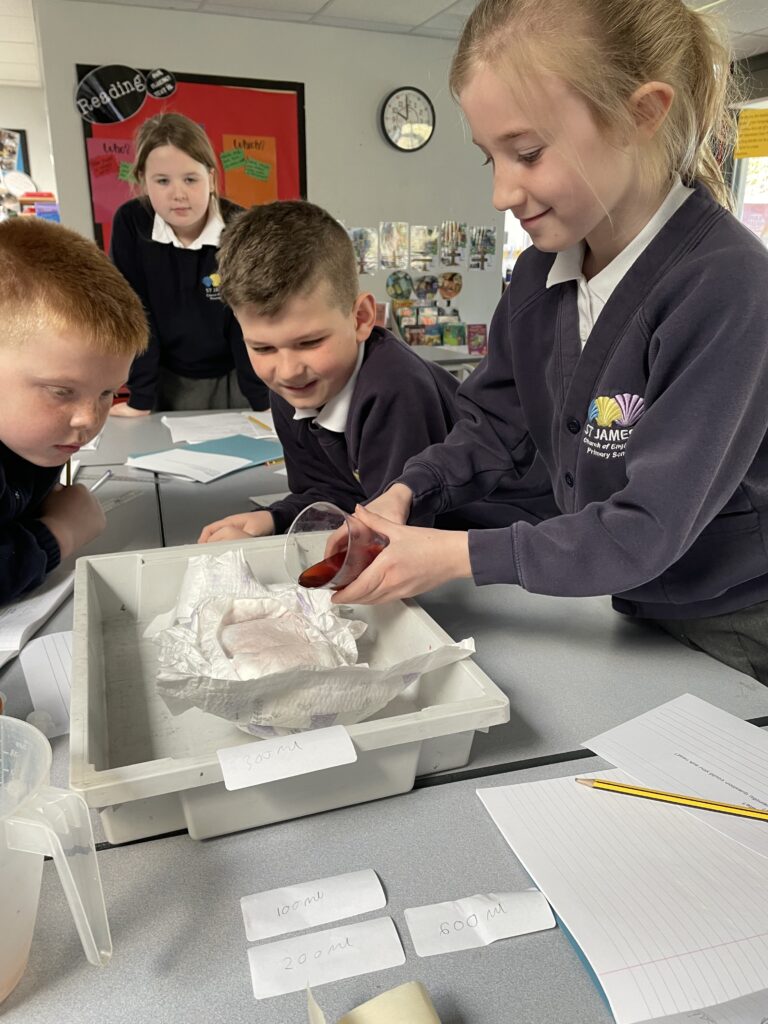
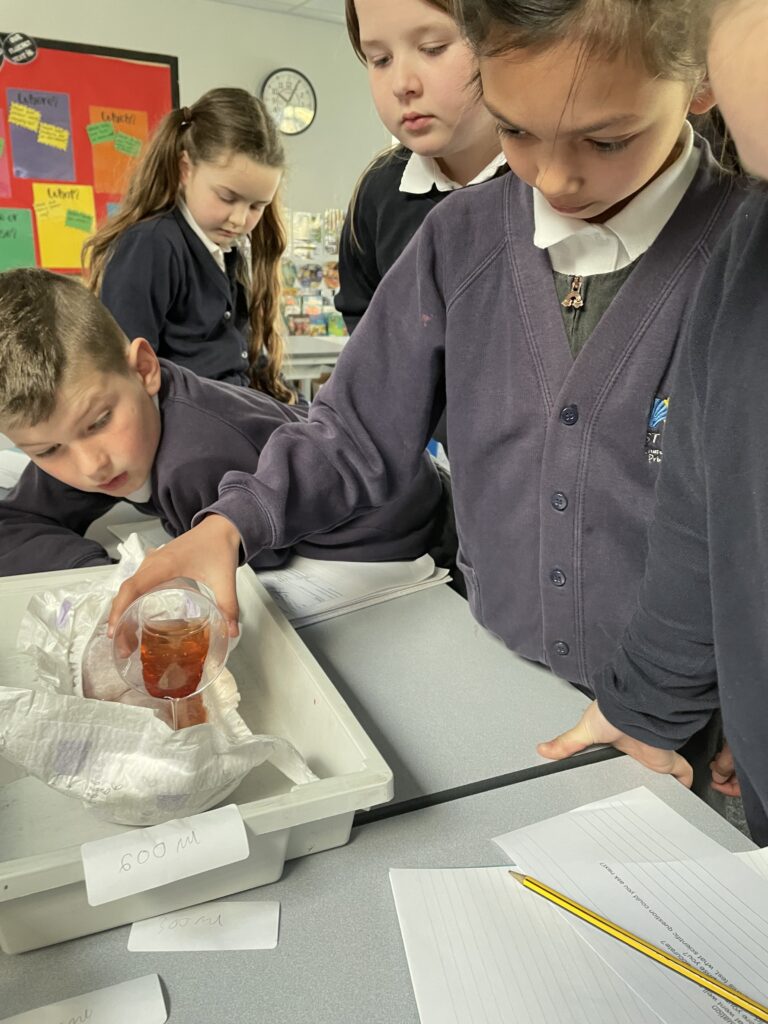
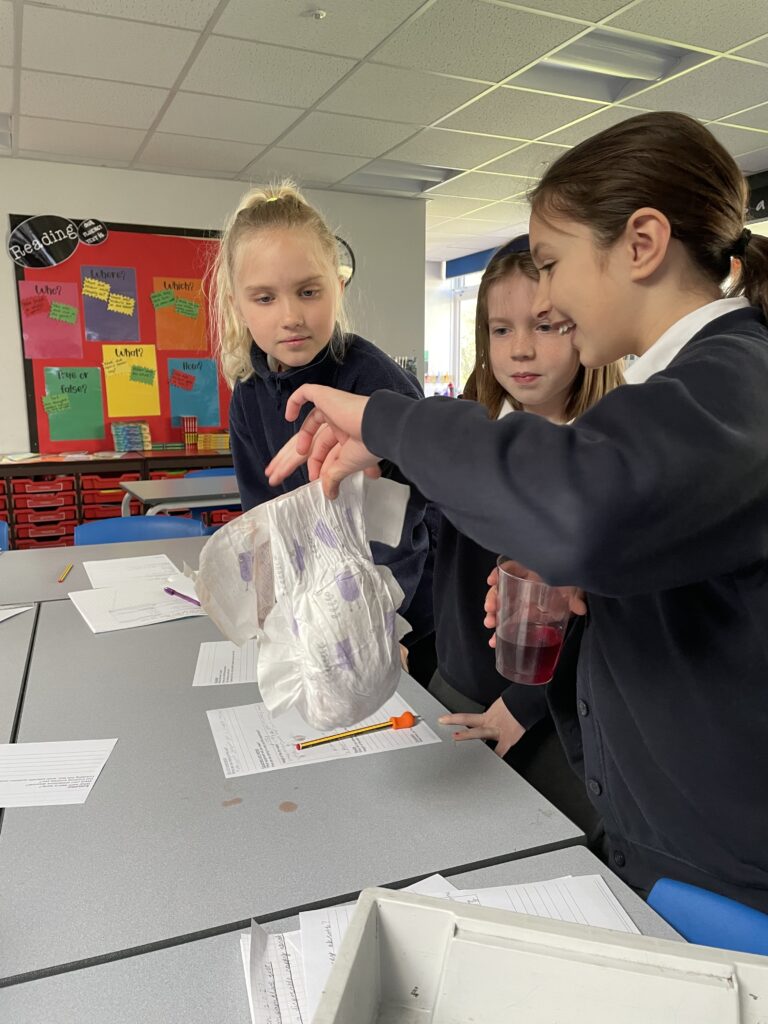
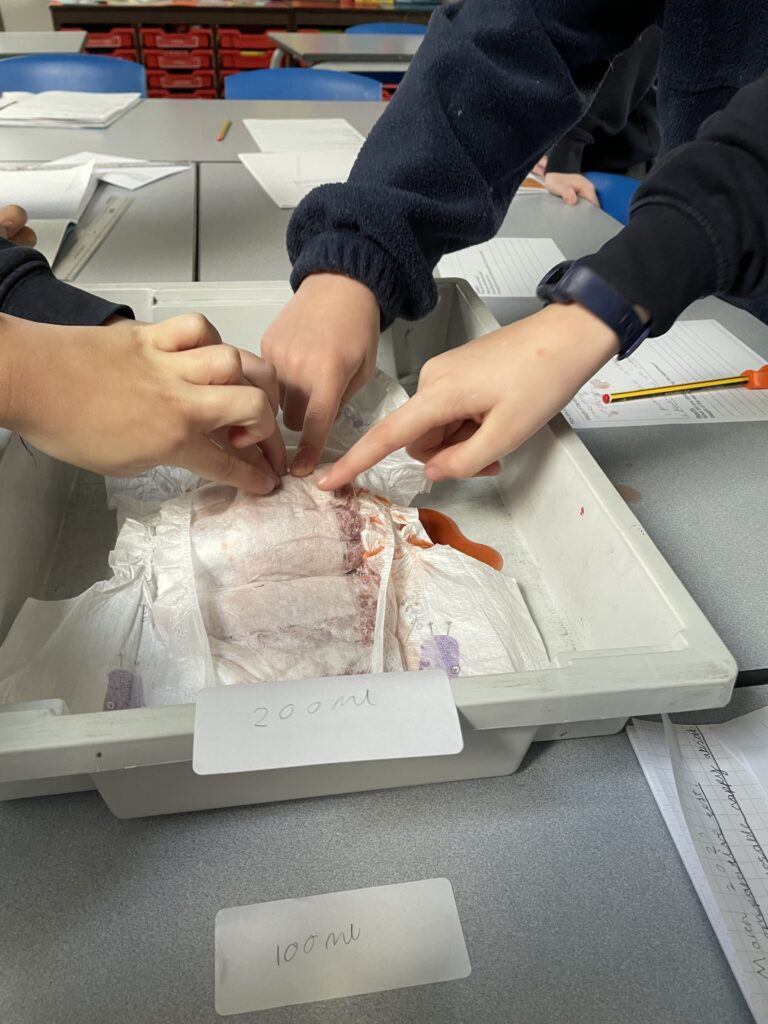
Discuss this with your child. Can they explain the answer to the scientific question? What did they find out? Were they surprised by the result?
What Are Fractions?
Our brand new topic in Maths is all about fractions! We recapped what fractions are and we know they are part of the whole. So if there are 13 children in Year 3, one of them is one part of the whole.
We looked at how fractions are written and thought about what the numerator and the denominator could be. The children had a go at splitting a whole into equal parts using playdough and wrote out their fractions.
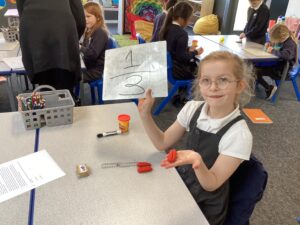
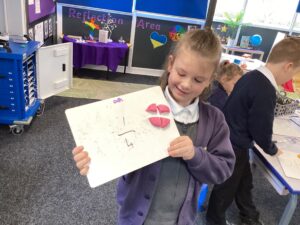
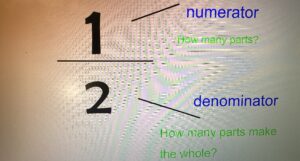
After, we started to compare unit fractions. We know that the numerator will always be 1. To help us compare unit fractions, we watched Miss Gledhill create a fractions wall for our classroom.
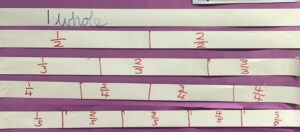
We looked at the size of each unit fraction. The children were able to recognise that the more equal parts the whole is split into, the smaller the part. Therefore, if someone loved chocolate they would certainly choose one quarter of a bar over one fifth!
Help at home by helping your child find equal parts. This could be of an object or a drawing. If they were to make a unit fraction, what would the numerator and denominator look like?
Maths: buy one get three free..!
In Year 4, time is dedicated to learning and quickly recalling the times table up to and including 12x.
Did you know that your child knows four facts just for knowing one times table fact. Confused? Take a look at this short video explaining what we’ve been working on…
Writing: spelling practice
Each week, time in class is spent practising spellings. Words are the building blocks to language and it’s important that words are spelled correctly.
Of course, like all things we practise little yet often, spelling practice can get a little dull..! Why not have a go at what we did in class! Spell the words, chop them up into a mini jigsaw then put them back together again!
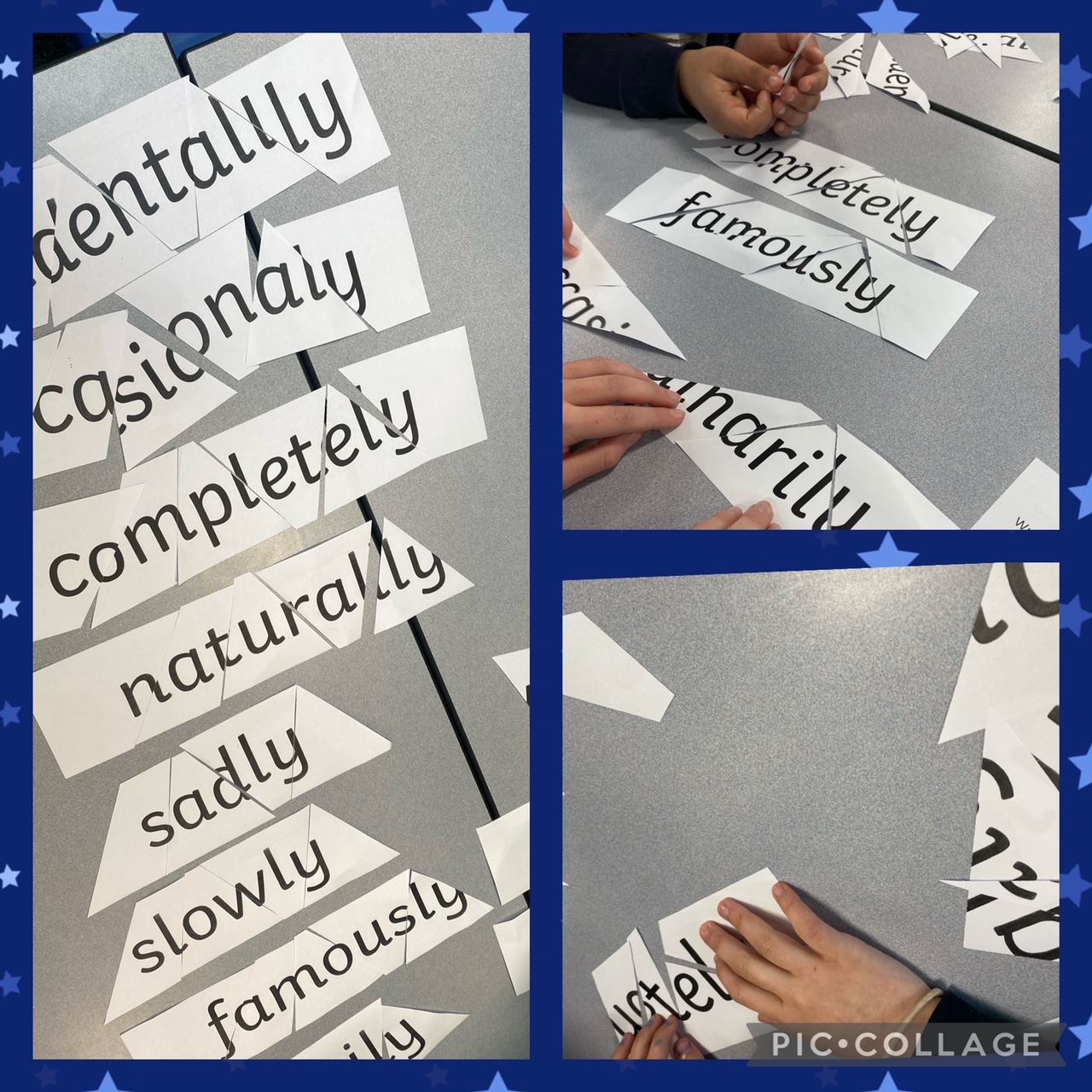
Maths: times tables
Year 4 is the year where we really smash our times table knowledge! In class, we investigate the patterns we can spot in the tables as well as frequently chanting the multiples forwards and backwards, highlighting the multiples on a 100sq or multiplication grid, using the multiples on a number line and filling in the blanks of number grids.
This week, we’ve even added singing songs to our repertoire of learning tables! Check out these songs at home to help support your learning of tables! There’s loads of these kind of songs around – maybe you could have them playing at home or in the car when you next take a journey- everyone loves a sing-a-long!
